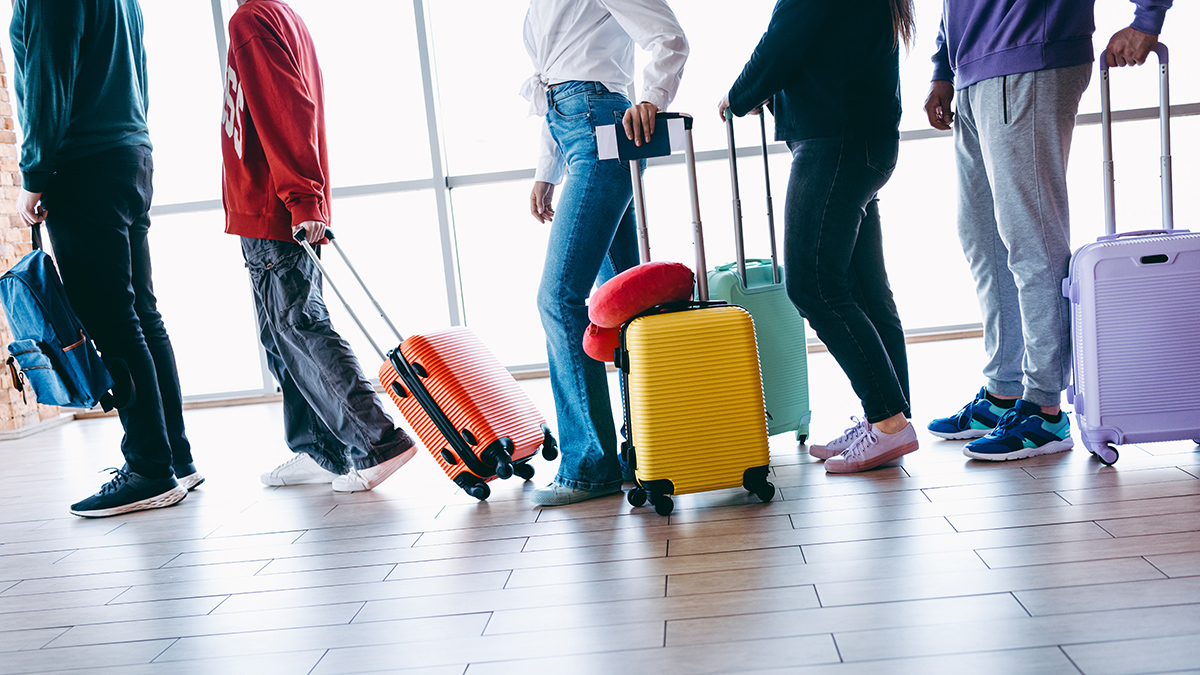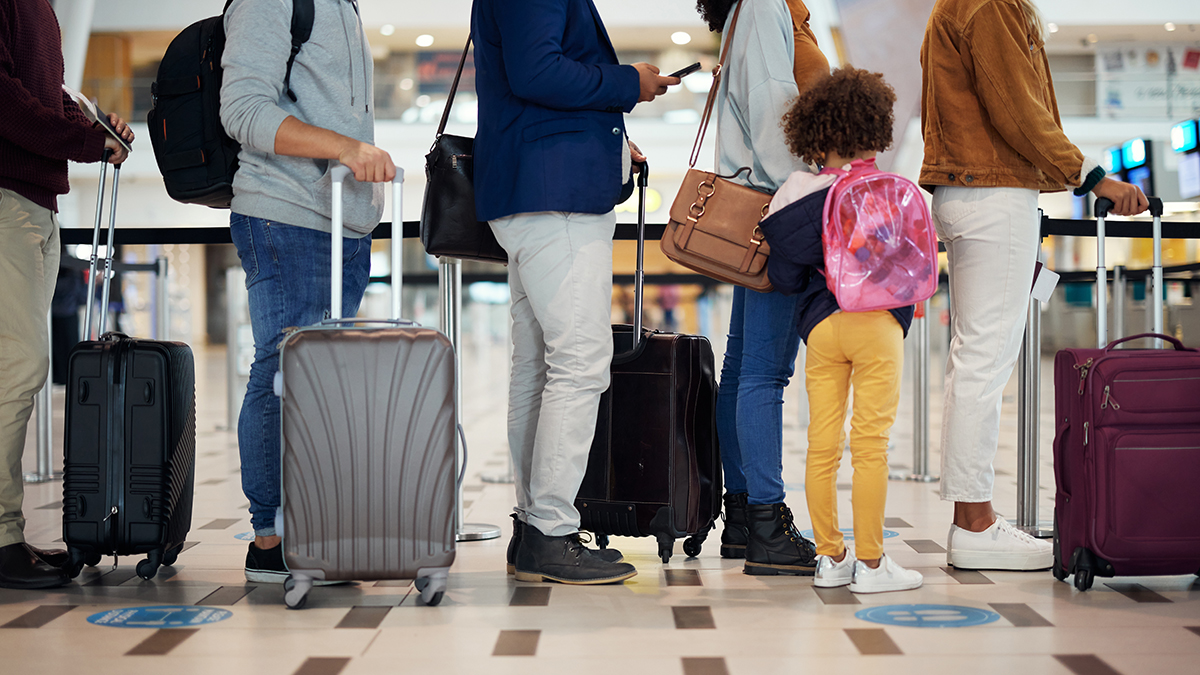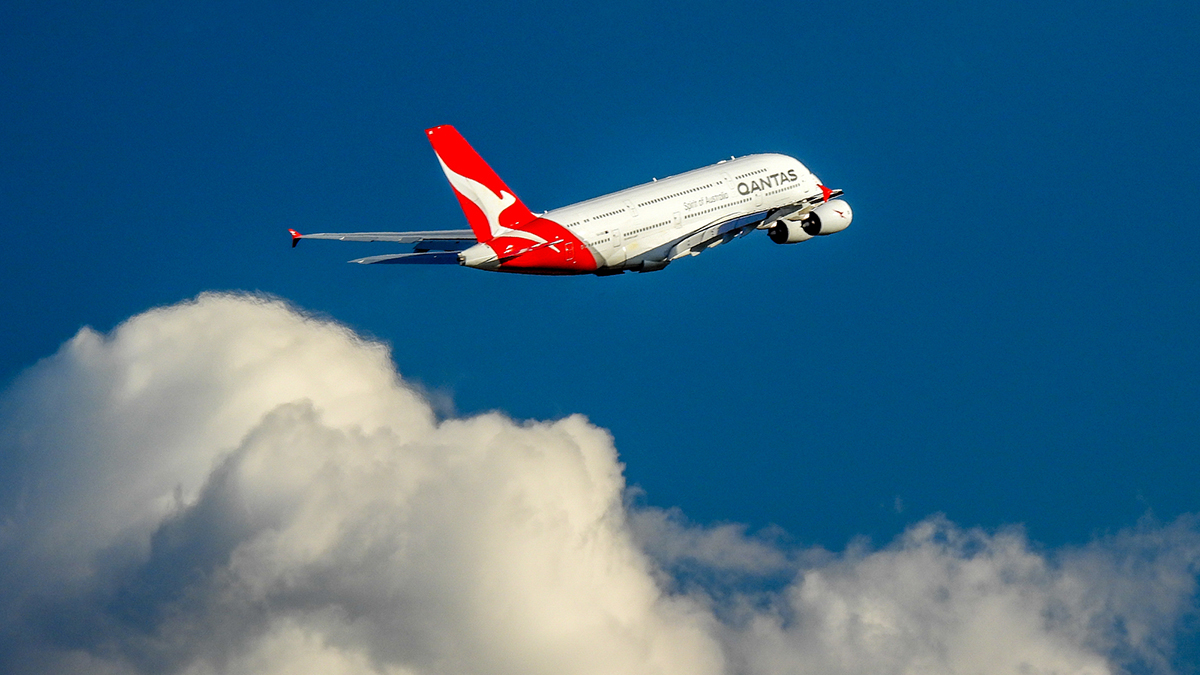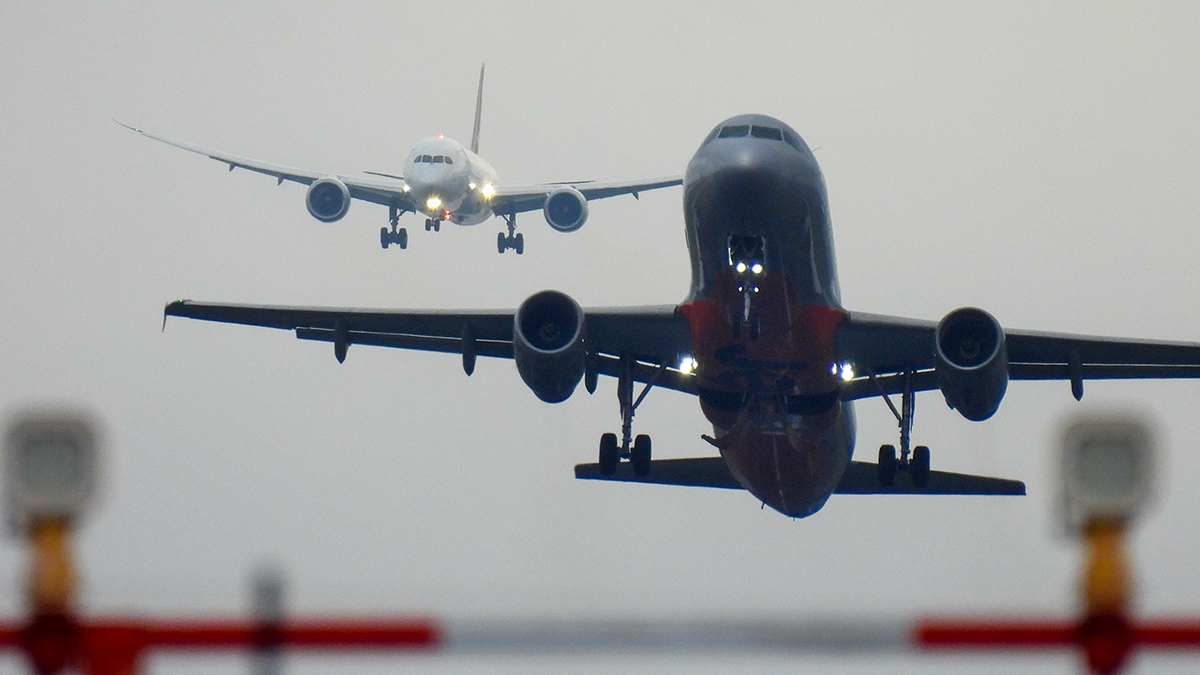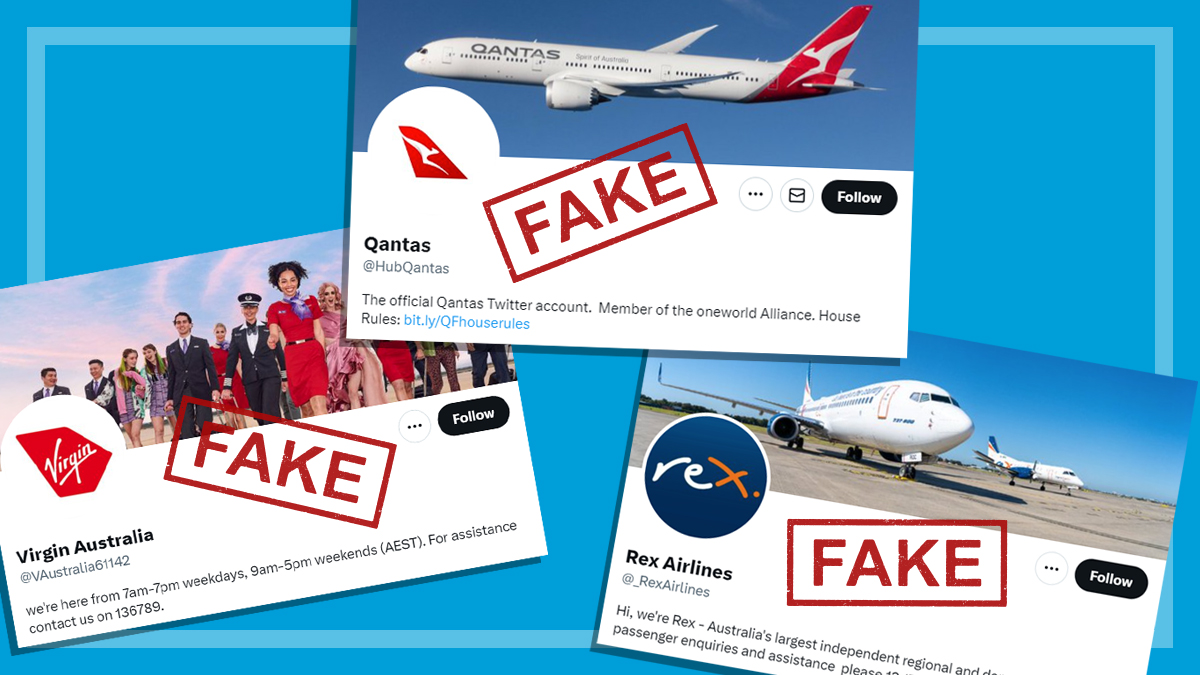Get our independent lab tests, expert reviews and honest advice.
Is Qantas greenwashing us with its carbon claims?
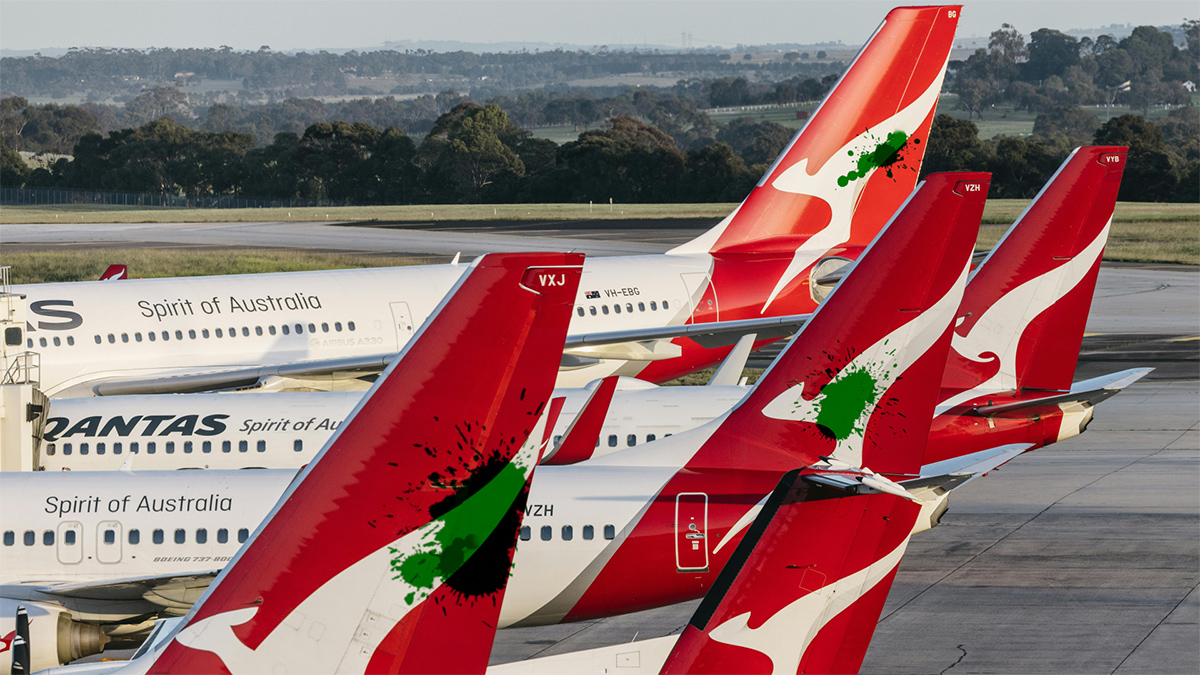
Need to know
- Australian advocacy group Climate Integrity recently filed a complaint with the ACCC against Qantas citing multiple instances of potential greenwashing
- The NGO charges that Qantas has no solid basis for the green claims in its marketing materials, not least because of its heavy reliance on fossil fuels
- In March, a Dutch court ruled that the Dutch arm of Air France-KLM had misled customers about its environmental commitments, and 20 other airlines in are under investigation in the EU
Like so many businesses large and small these days, Qantas wants you to know that it cares about the future of the planet.
To that end, it directs a stream of its marketing toward those of us who want to do what we can to help ward off climate catastrophe, or at least prevent it from getting too much worse.
Qantas passengers can choose to fly ‘carbon neutral’ for instance, and the airline says it’s on board with ‘sustainable aviation fuels’. The airline’s overarching promise is that it’s on course to achieve net-zero emissions by 2050.
Net-zero is an ambitious but fuzzy term. Generally, it means a business pulls off the miracle of taking as many carbon emissions out of the atmosphere by other means as it puts into it, which would be a very tall order for an airline.
The Climate Council has gone on record to say that the mechanisms companies purportedly use to get to net zero emissions – such as carbon offsets and carbon capture – are highly questionable.
Still, these commitments sound like a good thing, given that Qantas spread around 17.6 million tonnes of carbon dioxide (CO2) across the globe in 2023–24. The annual emissions of bigger airlines, of course, would be even higher.
Climate Integrity files greenwashing charges
Australian advocacy group Climate Integrity says Qantas’s claims are too vague and unsubstantiated to mean much. On those grounds, the NGO filed a complaint in October this year with the Australian Competition and Consumer Commission (ACCC) calling out multiple instances of potential greenwashing.
The charges are straightforward: Qantas has no solid basis for the green claims in its marketing materials because its reliance on fossil fuels remains gargantuan, which will continue to be the case for the foreseeable future. In addition, they claim Qantas’s net zero plan lacks clear targets and that it has yet to unveil a scientifically credible transition strategy.
For Climate Integrity, instances of alleged greenwashing include language such as “your contributions are used to purchase carbon offsets from accredited, high-integrity projects worldwide” and “carbon offsetting allows us to help compensate for these emissions by purchasing offsets that remove, reduce or avoid emissions in the atmosphere”. They claim these assurances are not backed by credible evidence.
The science is irrefutable – the burning of fossil fuels is the single largest driver of climate change and Qantas has a long-term reliance on fossil fuels
Climate Integrity director Claire Snyder
Idyllic images of turtles swimming at the Great Barrier Reef on Qantas reports is another example of potential greenwashing, according to Climate Integrity, since it gives the false impression that the airline is acting sustainably and reducing environmental harms.
The organisation’s case hinges on a hard-to-dispute reality: For the time being, air travel is one of those instances where we have to press pause in our efforts to reduce our carbon footprint.
“A Qantas customer choosing the ‘fly carbon neutral’ option for their flight might think that the climate impacts of their trip have been compensated for or significantly reduced,” says Climate Integrity director, Claire Snyder. “But this is not supported by science, and therefore distorts customers’ perception of the sustainability of flying.”
In the end, it’s a jet-fueled vehicle going somewhere around 925 km/hr that we’re travelling on.
“The science is irrefutable – the burning of fossil fuels is the single largest driver of climate change and Qantas has a long-term reliance on fossil fuels,” Snyder says. “Greenwashing at this scale creates a false sense of progress and undermines the urgent action necessary to reach zero emissions by 2050.”

Airlines in the EU called out for greenwashing
The Climate Integrity complaint to the ACCC follows a big airline greenwashing case in the EU earlier this year. In March, a Dutch court ruled that the Dutch arm of Air France-KLM had misled customers about its environmental commitments. Making claims to use more biofuels or plant trees “only marginally lessen environmental impacts and give the wrong impression that flying with KLM is sustainable”, the court found according to reporting by Reuters.
Derik Broekhoff, a senior scientist at the Stockholm Environment Institute who wrote a report that underpinned the KLM case, says environmentally-minded consumers shouldn’t be taken in by green-sounding terminology.
“Carbon neutral is not the same as zero emissions. Using carbon credits cannot turn an unsustainable flight into a sustainable one, and consumers still need to be mindful of their travel choices,” Broekhoff says. “It is not accurate for airlines to claim that purchasing carbon credits will compensate for fossil fuel emissions.”
Using carbon credits cannot turn an unsustainable flight into a sustainable one, and consumers still need to be mindful of their travel choices
Derik Broekhoff, senior scientist at the Stockholm Environment Institute
Especially if the volume of those emissions means the airline won’t be in line to meet the goals of the Paris Climate Agreement of limiting global warming to 1.5 degrees above pre-industrial temperatures.
Following the Dutch case, consumer protection authorities in the EU went on to investigate the alleged greenwashing practices of 20 other airlines. The practices on notice include:
- leading customers to believe that paying an additional fee to finance environmental projects outside of aviation or supporting alternative fuels will reduce their contribution to CO2 emissions
- using the term ‘sustainable aviation fuels’ without providing evidence of how they’re reducing the environmental impact of air travel
- throwing around catch-all terms such as ‘green’, ‘sustainable’ or ‘responsible’ in a general way without supporting evidence
- claiming that the airline is moving towards net-zero greenhouse gas emissions without verifiable commitments and independent monitoring
- providing CO2 calculators for specific flights without reliable proof that they’re accurate
- showing CO2 emissions comparisons of flights without showing sufficient and accurate information on the basis of the comparisons.
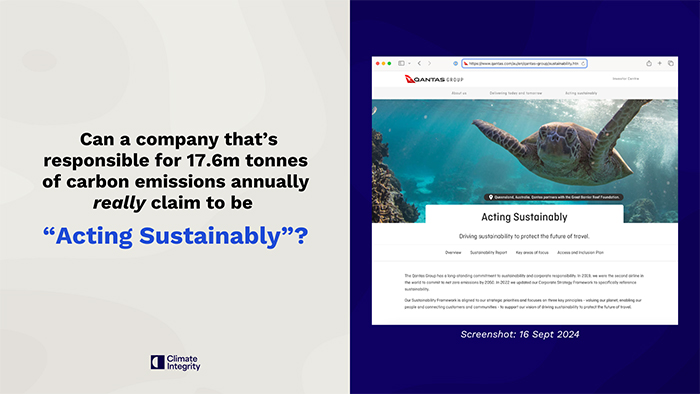
Airlines not the only culprits
Climate Integrity’s complaint to the ACCC was lodged by the Environmental Defenders Office, a Sydney-based NGO that files legal cases whose aim is to preserve and protect the environment. The complaint alleges that using terms like ‘sustainable aviation fuels’ in marketing materials, without definitive evidence that Qantas is using them, is inherently an act of greenwashing, which is illegal in Australia.
And it’s not just the airlines that are playing fast and loose with environmental claims. A Climate Integrity report prepared by the Institute for Sustainable Futures at the University of Technology Sydney and released in March this year highlights a range of other major Australian corporations – including Rio Tinto, BlueScope Steel, Woolworths Group, Coles Group, and Telstra – whose net zero pledges were found to lack scientific rigour and lag behind global best practice.
The report came on the heels of a 2023 ACCC investigation which found that the environmental claims of over half of the 247 businesses (57%) analysed included potential greenwashing violations.
‘Doing what we can’ says Qantas
A Qantas spokesperson acknowledged to CHOICE that “aviation is a particularly hard-to-abate sector” when it comes to reducing CO2 emissions but the airline has a responsibility “to do what we can with what’s available now”.
“High-integrity carbon offsets are key to us meeting net emissions reduction targets until sustainable aviation fuel and low and zero-emissions technologies are more readily available,” the spokesperson says.
Qantas pointed to its launch of a $400 million climate fund with Airbus to help speed up the establishment of a domestic sustainable aviation fuels industry as well as the development of nature-based fuel options.
Like all aspects of decarbonisation, targets, availability and effectiveness may change
Qantas spokesperson
“The journey to net zero emissions won’t be linear and one airline will not be able to solve this alone,” the spokesperson says, adding that the airline’s goal of achieving net-zero emissions by 2050 is backed by a “robust carbon offset and sustainable aviation fuels procurement plan”.
But with sustainable air travel likely still a long way off, should Qantas be making so much of its environmental commitments in its marketing to customers today, and assuring us that it will achieve net-zero emissions by mid-century?
The airline admits that the science behind its mitigation efforts is a work in progress and that “like all aspects of decarbonisation, targets, availability and effectiveness may change”.
(Photos courtesy of Climate Integrity.)

